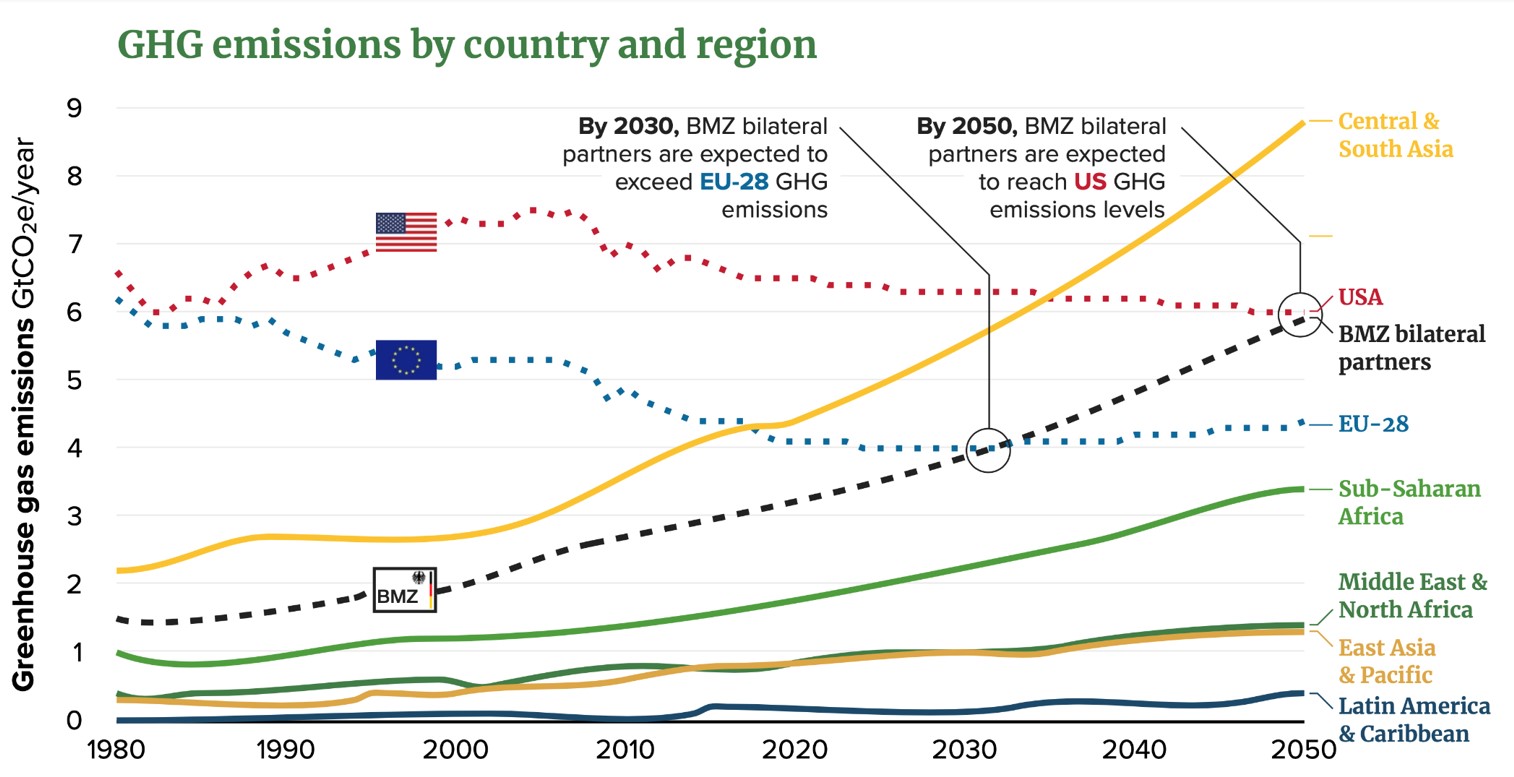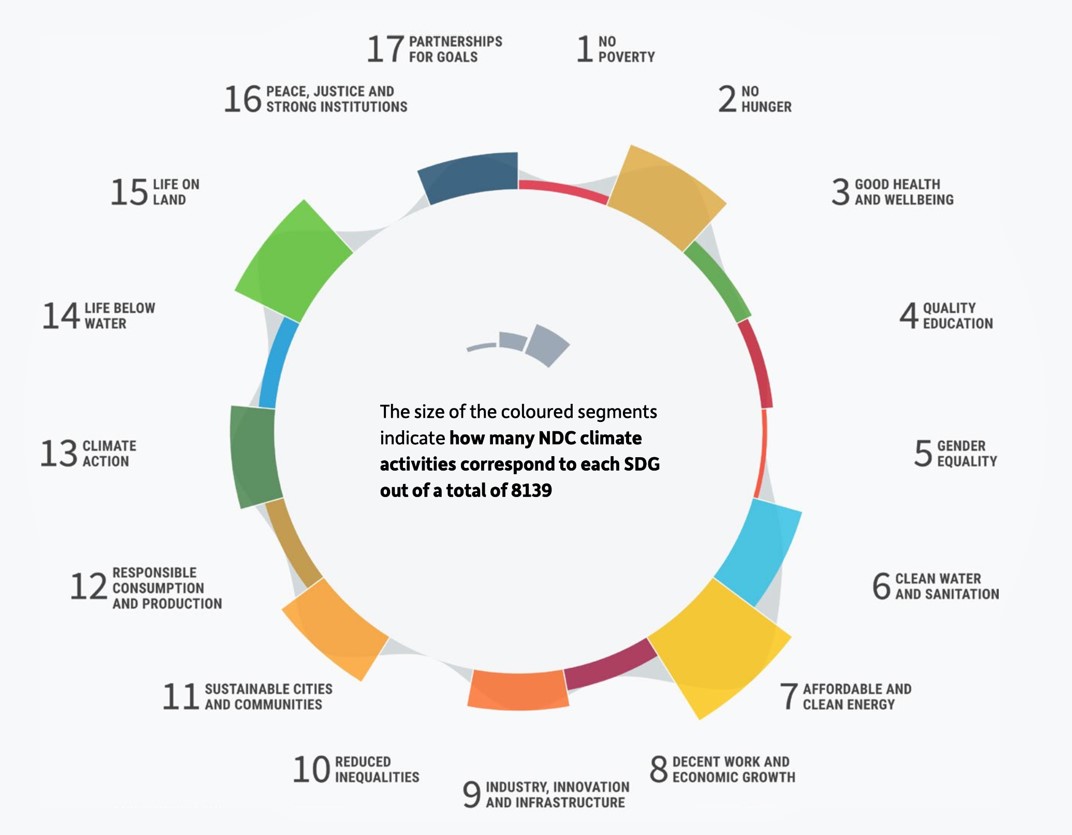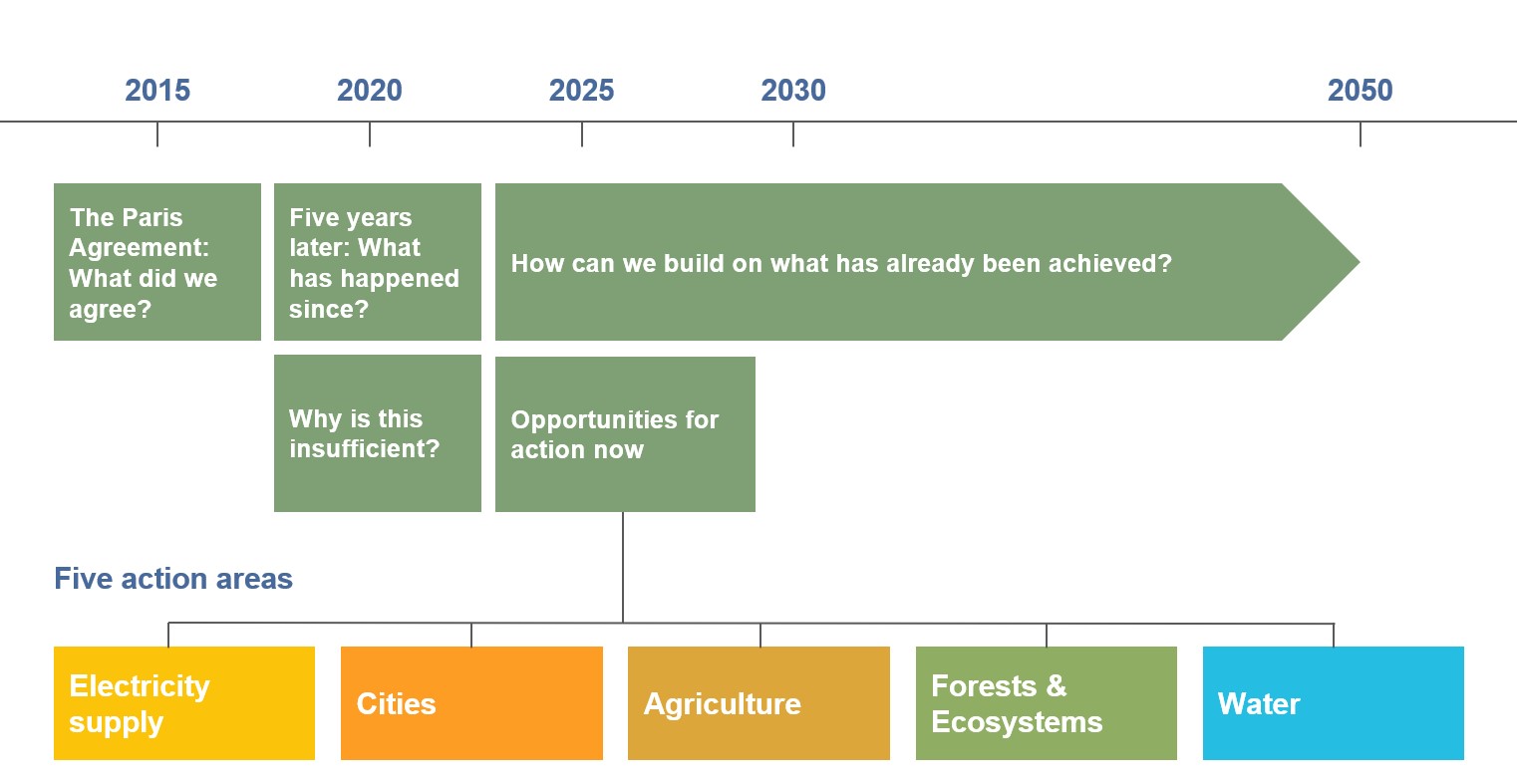This study shows how transformative change can bring about sustainable development, prevent climate change from spiralling out of control and address the unavoidable consequences of climate change in a development-friendly manner.
Main findings:
 In view of the multiple crises facing the world, unprecedented efforts are required to achieve resilient, climate-compatible and sustainable development on a global scale. Avoiding unmanageable climate change and managing its unavoidable impacts requires ambitious and coherent action towards the objectives of the Paris Agreement. In this context, the quest of “transforming our world”, as stipulated in the 2030 Agenda, presents a universal and cross-cutting challenge, which is further compounded by the ravaging COVID-19 pandemic and its unforeseeable long-term consequences. Climate change alters the framework conditions for sustainable development:
In view of the multiple crises facing the world, unprecedented efforts are required to achieve resilient, climate-compatible and sustainable development on a global scale. Avoiding unmanageable climate change and managing its unavoidable impacts requires ambitious and coherent action towards the objectives of the Paris Agreement. In this context, the quest of “transforming our world”, as stipulated in the 2030 Agenda, presents a universal and cross-cutting challenge, which is further compounded by the ravaging COVID-19 pandemic and its unforeseeable long-term consequences. Climate change alters the framework conditions for sustainable development:
- The period between now and 2030 is crucial if we want to achieve the goals of the Paris Agreement and stabilise the global temperature rise at 1.5°C.
- The atmosphere does not distinguish between North and South. It is thus necessary to take greater account of the importance of developing countries and emerging economies when it comes to successfully implementing the Paris Agreement.
- Failure to achieve the goals of the Paris Agreement would permanently prevent the achievement of just and sustainable global development that leaves no one behind.
- All political priorities, general conditions and investments should be geared to the requirements of the Paris Agreement.
- Tackling the challenges of climate change and sustainable development decisively is as much an issue of national self-interest as it is an imperative of international solidarity.
 There are already several well-known cross-cutting solutions at the interface of development and climate policy.
There are already several well-known cross-cutting solutions at the interface of development and climate policy.
- Current solutions need to be integrated to a greater extent and leveraged for comprehensive systemic transformation that will facilitate the achievement of the Paris Agreement and the 2030 Agenda.
- This will only succeed if effective incentives are provided for a significant course correction in developing countries and emerging economies..
- Concluding negotiations on market mechanisms in the interests of a robust interpretation of Article 6 of the Paris Agreement would indicate a decisive step in terms of a multilateral climate policy.
- An upward trend in international climate finance would send a confidence-building signal to the international community and would likely create a greater openness to transformation on the part of developing countries and emerging economies.
- When it comes to implementing national climate policy in the interests of sustainable development, it is also necessary to take systematic account of climate risks.
- Creating the right frameworks locally to strengthen a sense of ownership and capacity to act on the part of developing countries and emerging economies is the top priority.
In addition to overarching approaches, individual action areas at the interface of development and climate policy are highly relevant. Priority should be given to:
- Modernising energy production around the world;
- Making urbanisation climate-friendly;
- Safeguarding global food security with low emissions;
- Conserving forests and eco-systems;
- Taking account of sustainable water use.






